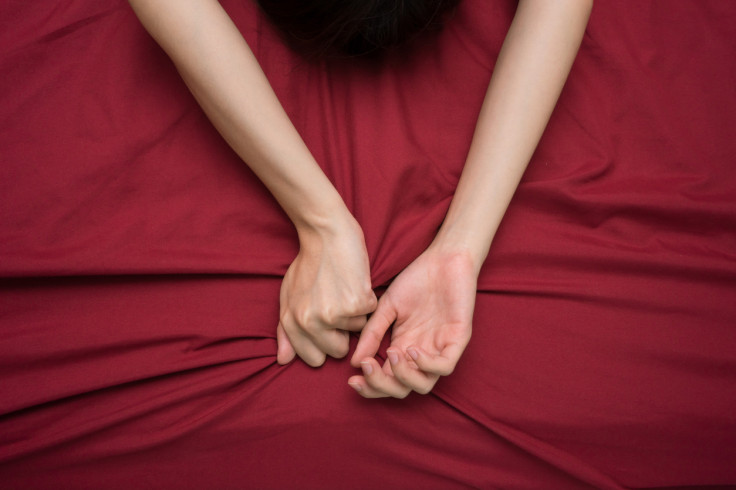Testosterone therapy for women: Everything you need to know
Testosterone therapy has shown positive results in trials to help women with sexual dysfunction.

Testosterone is so often seen as the "male hormone" that few people know that it is also produced by the female body.
It may in fact be crucial to their well-being, potentially driving sexual desire and satisfaction throughout their lives. To the point where in recent years, using testosterone as a therapy has often been presented as a "miracle" method to boost postmenopausal women's sex lives.
IBTimes UK takes a look at whether it is as miraculous as the headlines suggest and whether women risk anything by taking testosterone.
What is testosterone?
Testosterone is the main male hormone, primarily produced by the testicles. Men have it in large concentration in their body.
However, during their reproductive life, women's ovaries also produce testosterone, albeit to a much smaller quantity. Testosterone helps to regulate their sex drive, mental state and energy.
Levels of the hormone nevertheless begin to decrease as women age, across women's reproductive years. If they go through hysterectomy (surgical removal of the womb), these levels virtually fall to zero.
What is the function of testosterone in the female body?
In men and women alike, testosterone is thought to be the main hormone underlying sexual desire although recent studies have failed to identify a direct relationship between testosterone levels in women and sexual desire, arousal, or responsiveness.
But testosterone's role in sexual function and libido is only a small fraction of the physiologic effect of the hormone in women.
In pre and post-menopausal women low levels of testosterone have been associated with anxiety, irritability, depression, lack of well-being, physical fatigue, incontinence, breast pain and even changes in cognition. Testosterone thus appears to be essential for women's physical and mental health and well-being.
There is also evidence that testosterone may also be important for the maintenance of bone and muscle mass. Low testosterone has previously been linked to lower bone mineral density and increased fracture risk in postmenopausal women.
What is the normal level of testosterone in women?
A major challenge for scientists studying testosterone deficiency in women is that they have struggled to define what constitutes a normal range for testosterone levels. They have yet to establish a clear blood testosterone level cutpoint for testosterone deficiency. So a "normal'"testosterone level may vary from one lab to another.
For instance, scientists at Boston University school of Medicine point out that a testosterone deficiency in women corresponds to a plasma total testosterone level of less than 25 ng/dL (nanogram/decilitre) in women under 50 years old, and less than 20 ng/dL in women aged 50 or older.
In contrast, the University of Rochester indicates that a normal total testosterone level for women is comprised between 15 and 70 ng/dL.

If testosterone levels are way outside these typical ranges, women may be suffering from a condition affecting their testosterone production. This includes polycystic ovary syndrome, a condition characterised by raised levels of testosterone.
Post-menopausal women tend to have decreased levels of estrogen (the main female sex hormone) linked to symptoms such as hot flashes, sleep disturbances, and vaginal dryness, but their levels of testosterone can also be greatly reduced.
Indeed, testosterone levels decline with age and by the time women reach their late 40s, their blood testosterone levels are approximately half what they were in their 20's.
What are the symptoms of low testosterone?
Symptoms of low testosterone in women include irregular periods and fertility problems (for pre-menopausal women) as well as reduced libido, change in breast tissues, vaginal dryness and fatigue.
However, a major problem to determine whether women are actually suffering from testosterone deficiency is that these symptoms often overlap with other medical conditions. For instance, while testosterone insufficiency maybe the cause of a loss of libido, bad mood, and fatigue, these symptoms may also be caused by depression, iron deficiency, and hypothyroidism (an underactive thyroid gland).
Can women take testosterone and what for?
Testosterone therapy is being increasingly prescribed for men, but in recent years, there has been a lot more interest in using testosterone therapy for women.
It has been tested and used to help women who have gone through menopause (ever naturally, or surgically, following hysterectomy) with sexual dysfunction (low libido) in postmenopausal women.
Large, robust randomised controlled trials have demonstrated efficacy of testosterone therapy compared with placebo for multiple parameters of sexual function in postmenopausal women, even though the mechanisms behind this phenomenon remain unclear. The clinical data shows that taking testosterone supplements improves sexual problems for many of the participants – issues ranging from libido and arousal to pleasure.
But because many factors can impact sexual well-being and interest, women should also be assessed for general psychological, physical, and social health before moving on to testosterone therapy.
Some studies have shown other possible beneficial effects of testosterone therapy, such as reducing the risk of fractures, but this requires further investigation.
Furthermore, research evaluating the effect of testosterone therapy on cognitive performance in postmenopausal women is currently being conducted.
Is testosterone therapy safe ?
On the short term, during clinical trials, testosterone therapy appears to be relatively safe. More long-term studies are nevertheless need to assess safety for women over the years.
Randomised controlled trials have shown no indication that testosterone therapy, in formulations designed for women, has a negative impact lipid levels, blood pressure and carbohydrate metabolism, so there is no reason to believe it is unsafe.
One of the main concern is that on the long term, testosterone therapy could raise the risk of breast cancer. Studies that have reported an association between breast cancer and high testosterone levels, but they have often suffered from methodological flaws such as the fact scientists had not accounted for levels of other hormones or body mass index.
Clinicians tend to say that there is little evidence that women who take testosterone are at an elevated risk of breast cancer. That being said, the data remains contradictory and most trials have not been sufficient in size or duration to allow for clear conclusions.

In men, studies have suggested that testosterone therapy could endanger their cardiovascular health, although results have also been contradictory and it's not certain if they can be replicated in women.
What are the side effects of testosterone therapy?
The immediate concern for women may be potential side effects on the short term, as they go through testosterone therapy.
Reported side effects include acne, hair growth, putting on weight and deepening of the voice, although these are rare.
However, women are unlikely to get side effects as the testosterone products they are given remain in the female range of testosterone levels.
Where can women access testosterone therapy?
In the US, testosterone therapy is widely prescribed for postmenopausal women, often in a patch, gel, injection or implant form. However, no specific testosterone product is currently approved by the FDA approved for use in women.
Previously in the UK, testosterone could be given in implant form or patch. However, the patch has now been withdrawn for economic reasons and the implant is only currently available in some clinics who have been able to obtain it from outside the UK. The implant involves the insertion of a pellet every 6 months under the skin using local anaesthetic.
A gel is licensed for use in men but not for women although they could also benefit from it at smaller doses, under medical advice.
Many doctors currently only prescribe testosterone therapy to women who have already used oestrogen treatment before.
© Copyright IBTimes 2025. All rights reserved.






















